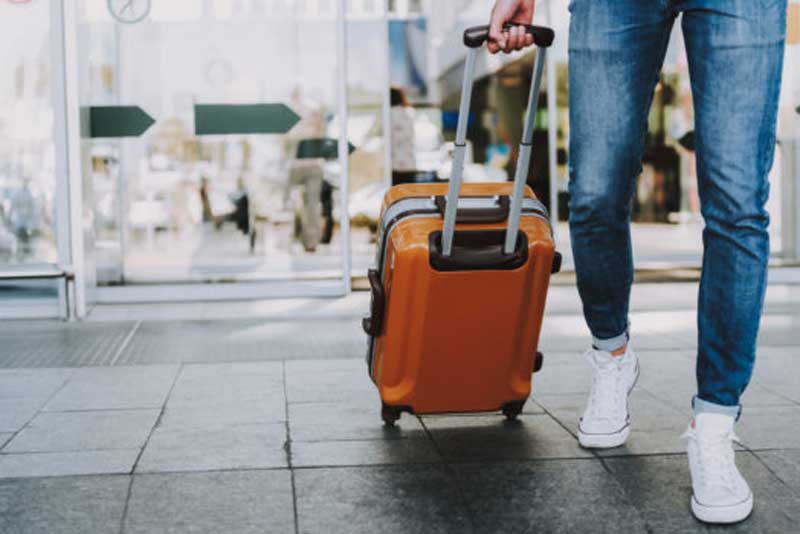
Spending more tax dollars on tourism advertising and incentives for manufacturers are among proposals to jump-start South Carolina’s economy, which took a severe blow with government-imposed shutdowns following the coronavirus outbreak.
The recommendation for increased tourism advertising is contained in a final report released last week by “accelerateSC,” an advisory committee created by Gov. Henry McMaster in April and made up of public- and private-sector representatives. It’s also among proposals listed in the “GrowSC Agenda,” released this week by a group of chambers of commerce and other business organizations statewide.
In addition, the GrowSC Agenda calls for the General Assembly to create a “new incentive program aimed at attracting American companies to bring back manufacturing operations to South Carolina.” State lawmakers are planning to return to Columbia later this month, reportedly to consider how to spend $1.9 billion in federal coronavirus aid.
Neither the accelerateSC nor GrowSC recommendations gave specifics on how much state money should be spent for those proposals. Besides voting to keep state government operating at current levels when the new fiscal year starts July 1, lawmakers last month also created a $155 million “COVID-19 Response Reserve” account out of an existing state surplus.
Nearly 560,000 initial unemployment claims have been filed in South Carolina since mid-March, when McMaster initially declared a state of emergency amid the COVID-19 outbreak. Among other actions, the governor temporarily banned in-dining at restaurants and hotel reservations by travelers from coronavirus hotpots, plus temporarily closed beach and other public waterway access points.
Numerous businesses statewide deemed “non-essential” under McMaster’s executive orders or local emergency orders also were temporarily closed, though The Nerve at the time raised questions about whether public health concerns were the primary considerations in deciding which businesses made the “non-essential” list.
In its final report released on May 28, the accelerateSC committee said the coronavirus outbreak “has had a very, very significant impact on one of South Carolina’s most significant business sectors – tourism,” noting that tourism spending statewide dropped 87% by mid-April. It recommended that “careful consideration be given to providing appropriate funding for tourism industry advertising.”
In supporting a proposal for “aggressive tourism promotion” to help local economies, the GrowSC group wrote, “We support efforts for new state investments in restarting our state’s vital travel and tourism industry,” though no specifics were offered.
The state Department of Parks, Recreation and Tourism was among listed state agencies assisting the accelerateSC committee. The agency annually spends millions on tourism advertising and marketing. In recent years, PRT has made sports marketing a priority, as The Nerve has reported; it was appropriated $6.5 million this fiscal year for its sports marketing grant program.
An agency spokeswoman didn’t respond to written questions Thursday about the accelerateSC and GrowSC proposals.
In a written response Friday, state Department of Commerce spokeswoman Alex Clark said the agency is “fully supportive of efforts to aid in the recovery of South Carolina’s tourism industry.” Commerce was designated as the “coordinating state agency” for the “response component” of the accelerateSC committee.
As for incentives for manufacturers, Clark said Commerce was “not involved with the GrowSC initiative” or “discussions related to manufacturing incentives,” adding, “The reality is that it is still too early to realize the full impact and decipher what sort of assistance is most needed and most appropriate for manufacturers as a result of COVID-19.”
Still, Commerce routinely pushes for incentives, typically through the state Coordinating Council for Economic Development (CCED), which is administered by Commerce and chaired by agency director Bobby Hitt, for manufacturers locating or expanding in the state. The CCED, for example, awarded $81 million in grants awarded to Berkeley County for site development, building costs and other related expenses for Volvo’s first U.S. car plant, as The Nerve reported last year.
In 2017, the CCED approved job development credits, which are rebates of a portion of employee wage withholdings, for building materials manufacturer James Hardie Building Projects, which planned to reopen a plant in Dorchester County, according to a Commerce release. Last month, the company announced it was closing the plant in part because of the COVID-19 outbreak, according to a story in the (Charleston) Post and Courier.
Brundrett is the news editor of The Nerve (www.thenerve.org). Contact him at 803-254-4411 or

















